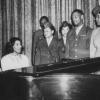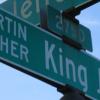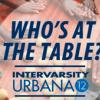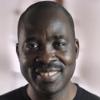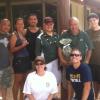People often ask me what my ethnicity is. Usually they assume I am Chinese—or Korean, if they have never met a Korean person before.
Ethnicity, Reconciliation, and Justice
The month of February is set aside to reflect on the many Black leaders who have shaped United States history, and who are often unjustly skimmed over in our classrooms.
In January at our blog, we’ve been looking at spiritual practices that can open us to the Holy Spirit’s sanctifying work in our lives.
Would Jesus eat frybread? That was the question 150 Native American students and staff from around the country gathered to discuss November 9–11 in Window Rock, Arizona (the capital of the Navajo nation).
Daniel Bourdanné’s life was profoundly impacted by the ministry of the International Fellowship of Evangelical Students (IFES) when he was a student in Chad, his home country.
In 28 hours I can be in Thailand. I just looked it up, thanks to the miracle of the Internet, although I use that term loosely (miracle, not Internet). Right this moment, I can book a flight from Chicago to Bangkok and be wheels-up to Thailand in six hours, carrying nothing with me except a messenger bag filled with beef jerky...
How often do we view our citizenship as a gift that we’ve been given to steward?
The year I graduated from law school turned out to be a momentous occasion for my relatives. That year, not only did I graduate from law school, but I also had one cousin graduate from law school and another graduate from pharmacy school.
When I moved back to Hawai‘i in 2007, I participated in Ho‘olohe Pono—a two week summer immersion into the Native Hawaiian community—to listen, learn, and serve with the aloha (love) of Jesus.
Pagination
- Previous page
- Page 10
- Next page

